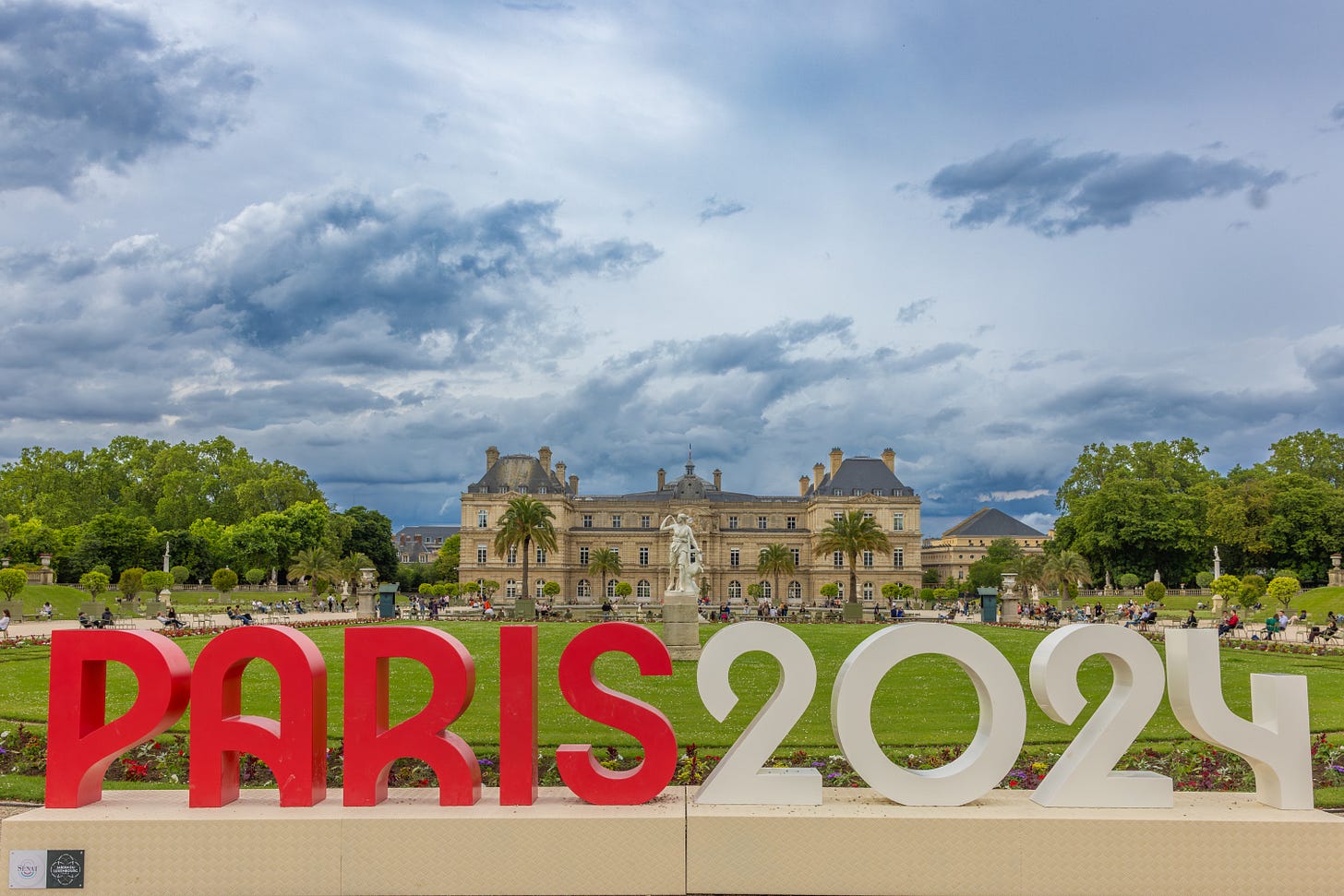Thanks for reading Pitches Get Stitches. I’m Jake. My company, Opinioned, helps leaders find compelling ideas for thought leadership writing and publish them as top-media op-eds or social media posts. I previously built and edited the opinion section at Fortune.
In this newsletter, I evaluate reader-submitted media pitches from the perspective of an opinion editor. I not only point out flaws, but highlight common themes I’ve noticed over my career fielding pitches and helping clients construct their own.
I would love if you submitted a pitch for me to review. It can be something you’re actively working on or hypothetical. And it can be a short email pitch or a full draft.
If you have a pitch, reply to this email or send it to jake@getopinioned.com. If I select it, I’ll omit any identifying information and evaluate it in this newsletter.
Something different: A full, published op-ed
It’s been a while since I’ve sent out a newsletter. Part of that has been life: I got married and I’m having a baby in October.
The other part has been that it’s tough to get a consistent number of pitches to evaluate, as this newsletter is still in its infancy. (Get it? Warming up my dad jokes already.)
So for this edition I’ve decided to evaluate a published op-ed that ran in U.S. News & World Report a few weeks ago.
Why this piece? I was poking around different opinion pages, and I’ve wanted to talk about the challenge of writing about a subject area that’s well-worn. This fit the bill.
I hope you enjoy the review. I took notes as I read the piece. I am presenting them to you here as closely as I can to my real-time reaction, while still keeping it readable.
My thoughts are in normal font; the article text is bolded and block quoted. I hope this makes it relatively easy for you to read and follow.
The Paris Olympics embrace sustainability even as sports struggle to adapt to climate change
This summer’s Games offer an opportunity to show the world the value of anticipating and adapting to environmental challenges.
💀 I’m not grabbed by this headline. (It’s important to note here that in most cases, the publication chooses the headline, so this is not a criticism of the author.)
The topic of sustainability has been beaten to death for many years. In order to entice me or any other reader to care about it, you need to find some kind of counterintuitive take on sustainability, or discuss it in a context where it’s truly surprising.
The idea that a major sporting event is embracing sustainability doesn’t surprise me. How they’re embracing sustainability might be interesting. But simply saying that they’re embracing it makes this sound like a press release written by someone who works for the Olympics.
💀 How do you fix this problem?
Get more specific. (This is the solution to many problems in opinion writing.)
You might object: How are you supposed to get specific in a headline when the article encompasses so many things?
No, no. That’s exactly the point. By getting specific in the headline, you draw people in. The headline is not meant to encapsulate all the main information contained in your article.
💀 You could get a little provocative with a headline like: “How the Paris Olympics are helping and hurting the climate at the same time.” I’m not sure what the best route is. But you really want to get away from framing like: “How X relates to climate change.”
Europe is in the midst of a heat wave, and while athletes gathering in Paris for the 2024 Summer Olympic Games might be spared the worst of it, the weather will still be hot.
As global temperatures have risen, major sporting events like the Olympics and the FIFA World Cup have had to adapt to high heat and extreme storms to keep athletes and fans safe and allow the contests to go on.
Olympic organizers have adapted by moving events such as marathons to early mornings and even to cooler cities. FIFA, the governing body for world soccer, pushed the 2022 Men’s World Cup back from its usual timeframe in June to November so it could be held in Qatar.
The heat risks and the environmental impact of major sporting events have led some people to question whether these events should be held at all. But as someone who studies sport management and sustainability in an area I coined called “sport ecology,” I believe that such a radical approach misses the benefits, including the Olympics’ ability to promote sustainable actions to the world.
💀 While this introduction is good, it goes on too long. I’d suggest losing the second and third paragraphs altogether. There are already plenty of helpful examples later in the piece.
It’s better to get the point quickly, which is contained in paragraph four.
💀 The thesis is done well. The author quickly works in their expertise in this subject, which is one they are uniquely positioned to comment on.
I think they could go further, though, in the thrust of their argument. The author isn’t just saying that the Olympics have the ability to promote sustainable actions. They’re saying that the Paris Olympics are actively doing that.
Reading this for the first time, I don't know if the article is going to discuss what’s happening now, or what should happen. That’s a big difference.
How rising global heat affects the Olympics
Sports have good reasons for caring about sustainability: Climate change can put athletes’ and fans’ health at risk and even put the future of some sports in doubt.
Winter sports face the greatest threats from climate change as temperatures rise and precipitation changes, dramatically shortening winter sports seasons in many areas. In 2022, the Beijing Winter Games had to artificially create snow so it could have ski runs at all. The International Olympic Committee has delayed its decision to select Winter Games host cities for 2030 and beyond because of the uncertainty of winter sports.
In the summer, global warming fuels extreme heat and storms that can affect the quality of the competition and the well-being of everyone involved.
Major sport federations and leagues, as well as the Olympics, have responded to the risks by delaying competitions to cooler times of day or year, implementing water breaks and offering more player substitutions.
Organizers of the Tokyo Summer Games, held amid a fierce heat wave in 2021, had preemptively moved the marathon to Sapporo, more than 500 miles north of Tokyo, so athletes could run in cooler weather. They also delayed competitions during the Games to avoid extreme heat and excessive rain.
💀 I love this section. For anyone trying to figure out how to incorporate a lot of examples in a way that supports their argument without overwhelming the reader, just read the previous paragraphs.
💀 I appreciate that they start the section with a line establishing why climate change should be important for sports fans.
Too often in the climate change thought leadership space, it’s taken for granted that the reader will automatically be concerned about the impact of climate change. Even though we’ve all heard warnings about climate change incessantly for years, it’s still important to make clear exactly how climate change is going to affect something.
💀 What’s great about the examples used is that they’re not presented like a laundry list. That’s often what writers do, and it puts readers to sleep.
Instead, each example includes specific details that bring it to life.
Olympic progress toward sustainability
Any large event like the Olympics can produce vast carbon emissions through its construction, transportation needs and energy use.
That impact – and the risks it creates for sports and their athletes – is why sustainability has been a pillar of the Olympic charter since 1996, as well as a core focus of its planning for the future. In 2012, the London Olympics pioneered a new international certification standard, which provides guidelines for any large event to make more sustainable choices, from construction to catering.
The 2024 Paris Games, scheduled from July 26 to Aug. 11, and the Paralympic Games, set for Aug. 28 to Sept. 8, are certified to the latest standard, and organizers are taking many steps to reduce their climate impact.
For example, the organizers plan to power event operations with 100% renewable energy from wind and solar. They are using existing venues when possible, had new ones built with low-carbon concrete and recycled materials, and brought in thousands of seats made of recycled plastic.
All furniture and temporary buildings approved for the Games also must have a contractually guaranteed second life, rather than just going into a landfill. All of the competition venues are accessible by public transportation, allowing for fewer vehicles on the streets. Even the food is targeted for a 50% emissions cut compared with the average meal by increasing the use of plant-based foods. The Paralympics will use the same venues and housing in the weeks that follow.
That doesn’t mean the 2024 Olympics won’t have a large carbon footprint, however, particularly as many spectators and athletes arrive by plane. But the organizers are aiming for the construction and operations emissions to be half those of the London and Rio Games in 2012 and 2016, respectively.
💀 Sustainability being in the Olympics charter since 1996 is interesting, since back then “sustainability” was not the overused buzzword it is today. Explaining this fact demonstrates that the author has strong command of this subject.
💀 This is also another great example of the author showing, not telling—and that continues through the rest of this section.
💀 I also like how the author contends with potential criticism in the last paragraph. He both sattes what the criticism is and then quickly introduces a mitigating factor.
💀 This section would have been even more powerful if the author had contrasted the Olympics’ efforts on sustainability with the approaches of comparable events/organizations. That would give me a sense of how well the Games have done on this front.
World’s fair of sustainability
The Paris Olympic Games is an example of what large sporting events can do to reduce their impact on the environment and promote sustainability solutions to a global audience. Spectators will experience sustainability firsthand, and organizers will promote the Games’ sustainability efforts.
One hope is that such campaigns can influence people’s everyday behaviors and even increase their advocacy for sustainability in their home communities.
Suggestions to reduce the scale and size of sports events or eliminate commercialized sports, ending spectator sports as we know them, overlook the ability of sports to influence and change human behavior.
Sustainability is a constantly evolving process of learning from the past to improve for the future.
The 2024 Olympics’ strategies will also help in planning for future events, including the 2028 Summer Games in Los Angeles.
In essence, these Olympic Games will be a sport sustainability world’s fair. They will highlight what is possible for a sporting event through collaborations with international corporations to reduce environmental impact. And it influences others to follow suit, whether that is other sporting events, leagues and federations or spectators from around the world.
Brian P. McCullough is Program Chair of Sport Management and Associate Professor in the School of Kinesiology at the University of Michigan.
This commentary was produced in partnership with The Conversation, a nonprofit, independent news organization dedicated to bringing the knowledge of academic experts to the public.
💀 There’s a good lesson here: Be careful what you link to.
Immediately on reading it, I was skeptical that there are any serious suggestions to “eliminate commercialized sports.” So I checked the link.
Editors might not check all your links, but they’ll probably check any that seem suspicious.
One of the lines in the conclusion of that hyperlinked article reads: “However, elite sport can be compatible with effective climate-friendly policies and degrowth.” That’s a far cry from suggesting commercial sports be eliminated.
If an editor notices an inaccurately sourced article like that, they might start worrying about other links you’ve included. From that point forward, you may have lost credibility with them, particularly if they determine you deceived them intentionally (which usually isn’t the case, of course).
💀 The author could spend a little more time explaining how the Olympics’ example-setting could actually influence the behavior of people and organizations going forward. They link out to an article about the 2028 Games in Los Angeles, but I’d like to see this spelled out in the article.
💀 I also would like to read the author’s analysis on how the Paris Olympics have done in making sure participants and spectators understand the level of advancements they’ve made in sustainability. The examples listed, such as seats made from recycled plastic, sound like good ideas—but do the people sitting in them know?







